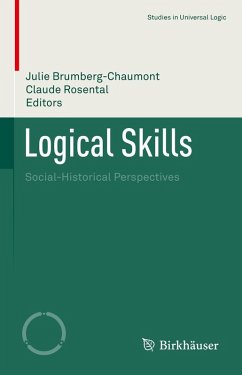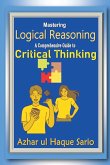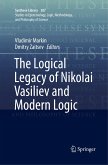This contributed volume explores the ways logical skills have been perceived over the course of history. The authors approach the topic from the lenses of philosophy, anthropology, sociology, and history to examine two opposing perceptions of logic: the first as an innate human ability and the second as a skill that can be learned and mastered. Chapters focus on the social and political dynamics of the use of logic throughout history, utilizing case studies and critical analyses.
Specific topics covered include:
Logical Skills: Social-Historical Perspectives will appeal to undergraduate and graduate students, as well as researchers in the fields of history, sociology, philosophy, and logic. Psychology and colonial studies scholars will also find this volume to be of particular interest.
Specific topics covered include:
- the rise of logical skills
- problems concerning medieval notions of idiocy and rationality
- decolonizing natural logic
- natural logic and the course of time
Logical Skills: Social-Historical Perspectives will appeal to undergraduate and graduate students, as well as researchers in the fields of history, sociology, philosophy, and logic. Psychology and colonial studies scholars will also find this volume to be of particular interest.
"History remains important within postcolonial STS. The Postcolonial Science and Technology Studies Reader (Harding, 2011), for example has numerous contributions by historians ... . Logical skills shows that, to better understand the shared insights of postcolonial STS and STS itself, the sociological study of history is a fruitful approach." (Maria Amuchastegui, Science & Technology Studies, Vol. 35 (3), 2022)








